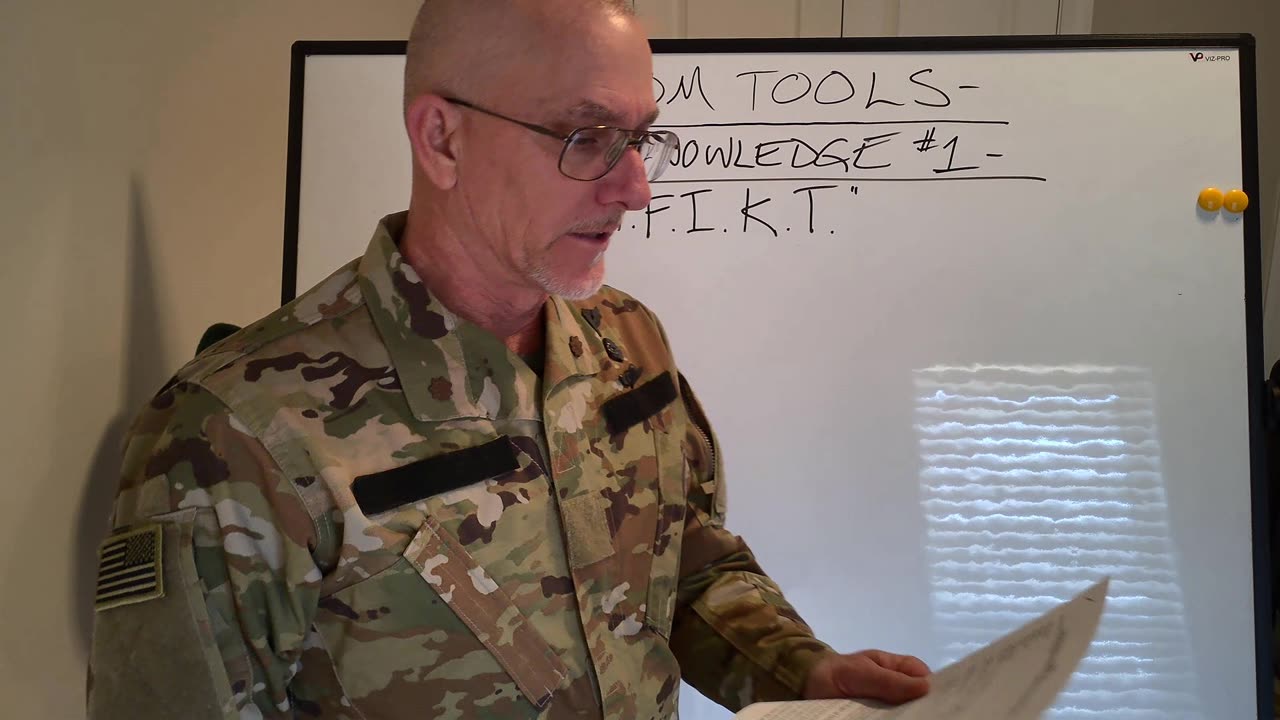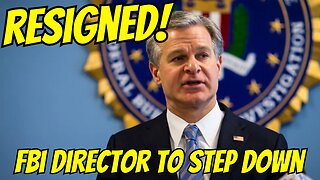Premium Only Content

HABAFIKT, an acronym
When "arrest" is not arrest, it is a series of crimes aka 'false arrest' which is a misnomer, you are being assaulted and battered etc.
Your Right of Defense Against Unlawful Arrest;
“Citizens may resist unlawful arrest to the point of taking an arresting officer's life if necessary.” Plummer v. State, 136 Ind. 306. This premise was upheld by the Supreme Court of the United States in the case: John Bad Elk v. U.S., 177 U.S. 529. The Court stated: “Where the officer is killed in the course of the disorder which naturally accompanies an attempted arrest that is resisted, the law looks with very different eyes upon the transaction, when the officer had the right to make the arrest, from what it does if the officer had no right. What may be murder in the first case might be nothing more than manslaughter in the other, or the facts might show that no offense had been committed.”
“An arrest made with a defective warrant, or one issued without affidavit, or one that fails to allege a crime is within jurisdiction, and one who is being arrested, may resist arrest and break away. lf the arresting officer is killed by one who is so resisting, the killing will be no more than an involuntary manslaughter.” Housh v. People, 75 111. 491; reaffirmed and quoted in State v. Leach, 7 Conn. 452; State v. Gleason, 32 Kan. 245; Ballard v. State, 43 Ohio 349; State v Rousseau, 241 P. 2d 447; State v. Spaulding, 34 Minn. 3621.
“When a person, being without fault, is in a place where he has a right to be, is violently assaulted, he may, without retreating, repel by force, and if, in the reasonable exercise of his right of self defense, his assailant is killed, he is justified.” Runyan v. State, 57 Ind. 80; Miller v. State, 74 Ind. 1.
“These principles apply as well to an officer attempting to make an arrest, who abuses his authority and transcends the bounds thereof by the use of unnecessary force and violence, as they do to a private individual who unlawfully uses such force and violence.” Jones v. State, 26 Tex. App. I; Beaverts v. State, 4 Tex. App. 1 75; Skidmore v. State, 43 Tex. 93, 903.
“An illegal arrest is an assault and battery. The person so attempted to be restrained of his liberty has the same right to use force in defending himself as he would in repelling any other assault and battery.” (State v. Robinson, 145 ME. 77, 72 ATL. 260).
“Each person has the right to resist an unlawful arrest. In such a case, the person attempting the arrest stands in the position of a wrongdoer and may be resisted by the use of force, as in self- defense.” (State v. Mobley, 240 N.C. 476, 83 S.E. 2d 100).
“One may come to the aid of another being unlawfully arrested, just as he may where one is being assaulted, molested, raped or kidnapped. Thus it is not an offense to liberate one from the unlawful custody of an officer, even though he may have submitted to such custody, without resistance.” (Adams v. State, 121 Ga. 16, 48 S.E. 910).
“Story affirmed the right of self-defense by persons held illegally. In his own writings, he had admitted that ‘a situation could arise in which the checks-and-balances principle ceased to work and the various branches of government concurred in a gross usurpation.’ There would be no usual remedy by changing the law or passing an amendment to the Constitution, should the oppressed party be a minority. Story concluded, ‘If there be any remedy at all ... it is a remedy never provided for by human institutions.’ That was the ‘ultimate right of all human beings in extreme cases to resist oppression, and to apply force against ruinous injustice.’” (From Mutiny on the Amistad by Howard Jones, Oxford University Press, 1987, an account of the reading of the decision in the case by Justice Joseph Story of the Supreme Court.
As for grounds for arrest: “The carrying of arms in a quiet, peaceable, and orderly manner, concealed on or about the person, is not a breach of the peace. Nor does such an act of itself, lead to a breach of the peace.” (Wharton’s Criminal and Civil Procedure, 12th Ed., Vol.2: Judy v. Lashley, 5 W. Va. 628, 41 S.E. 197).
You are also within your rights not to answer any questions without a lawyer present, and if possible, to demand a video recording be made of the entire encounter that you or your lawyer keep as evidence, so that federal prosecutors can't get away with charging you with making false statements to a government investigator and testifying about what you said. See this article.
As a practical matter one should try to avoid relying on the above in an actual confrontation with law enforcement agents, who are likely not to know or care about any of it. Some recent courts have refused to follow these principles, and grand juries, controlled by prosecutors, have refused to indict officers who killed innocent people claiming the subject "resisted" or "looked like he might have a gun". Once dedicated to "protect and serve", far too many law enforcement officers have become brutal, lawless occupying military forces.
-
 5:38:59
5:38:59
Dr Disrespect
6 hours ago🔴LIVE - DR DISRESPECT - FORTNITE - FIRST PERSON MODE
175K58 -
 UPCOMING
UPCOMING
Melonie Mac
2 hours agoGo Boom Live Ep 31!
5291 -
 UPCOMING
UPCOMING
Exploring With Nug
7 hours agoMissing Person Found After 25 Years With A Dark Past! What Did He Do?
152 -
 1:02:09
1:02:09
In The Litter Box w/ Jewels & Catturd
22 hours agoFANI IN DEFAULT | In the Litter Box w/ Jewels & Catturd – Ep. 703 – 12/11/2024
49.9K17 -
 3:21:08
3:21:08
Viss
6 hours ago🔴LIVE - Dominating The Delta Force Arena! - Delta Force Extractions
23.5K5 -
 17:41
17:41
SLS - Street League Skateboarding
5 hours agoSuper Crown Finalist: Chloe Covell | Best of the 2024 SLS Championship Tour, so far…
15.7K1 -
 2:09:10
2:09:10
Mally_Mouse
2 hours agoLet's Yap About It - LIVE!
43.9K2 -
 LIVE
LIVE
Film Threat
8 hours agoJUSTINE BATEMAN SPEAKS! LIVE INTERVIEW | Hollywood on the Rocks
385 watching -
 4:02
4:02
Guns & Gadgets 2nd Amendment News
2 hours agoBREAKING NEWS: FBI Director RESIGNS
15.7K37 -
 11:24
11:24
Dr David Jockers
2 hours ago $0.64 earnedHow High Blood Sugar Destroys Your Arteries & How To Fix It
10.9K1